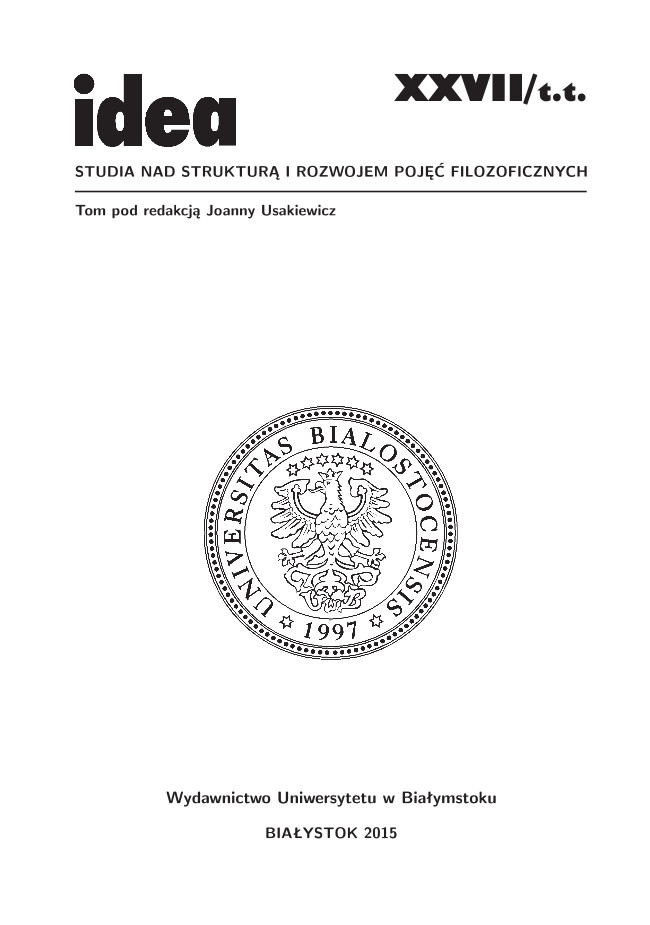Natura i struktura tożsamości osoby. Analiza problemu na przykładzie wybranych prac G.W. Leibniza
Nature and Structure of Personal Identity: an Analysis of Selected Works of G.W. Leibniz
Author(s): Adrianna SenczyszynSubject(s): Philosophy, History of Philosophy
Published by: Wydawnictwo Uniwersytetu w Białymstoku
Keywords: Leibniz; Locke; personal identity; real and moral identity; apperception
Summary/Abstract: The main aim of this paper is to reconstruct G. W. Leibniz’s view on nature and structure of human identity. For this purpose selected writings of the author and of several other philosophers whose impact on his conclusion was the most noticeable are exploited. Analysis of these sources in relation to Leibniz’s whole monadological system provides us with the explication of human identity in his anthropology. In the first part the author concentrates on the historical background of a reflection on the notion of nature, which in Leibniz’s philosophy constitutes the basis of human identity. The Hanoverian philosopher, as the author claims, continues Aristotle’s thought on this issue. Afterwards a basic individual being – monad – is presented. Through the monad the German philosopher managed to unite two – seemingly opposing – perspectives: substancial (aristotelism) with “consciously-reflective”, which is synonymous with Descartes’ cogito. In the second part the author introduces the concept of the human person, which indicates such features as rationality, substantiality and individuality. From the latter flows such characteristics of personhood as uniqueness, distinctiveness and incommunicability. Even though this classical interpretation of the person was deconstructed by Descartes, the author shows that the monadic subject did not lose the attributes Leibniz’s processors wrote about. In the third part the author presents John Locke’s interpretation of the human identity described in his opus magnum – An essay concerning human understanding, in opposition to which Leibniz developed his own theory. In the fourth part the structure of human identity in the interpretation of the German is presented. The author of this paper particularly focuses on the characteristics of its two dimensions: real identity and moral identity. At the end, in the fifth part, the epistemological foundation of Leibniz’s anthropology: perception, apperception and reflection, its specifics and the relation to two levels of human identity presented in Nouveaux essais sur l’entendement humain are explored.
Journal: Idea. Studia nad strukturą i rozwojem pojęć filozoficznych
- Issue Year: 1/2015
- Issue No: XXVII
- Page Range: 169-189
- Page Count: 21
- Language: Polish

